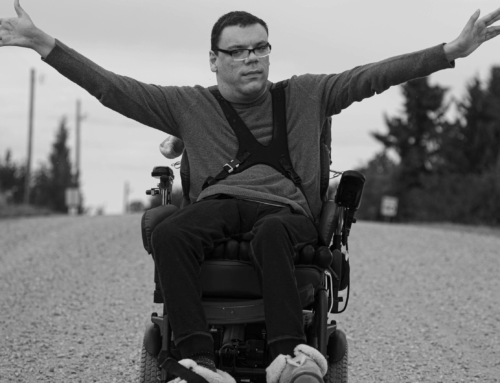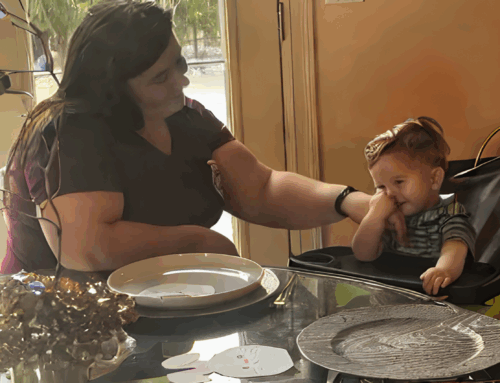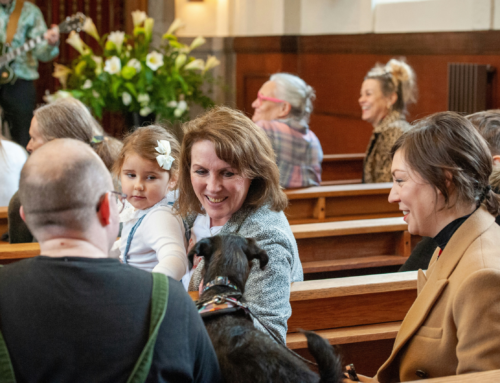The Unshaken Kingdom conference in Waterloo, Ontario was one of the first in-person conferences I could be at in a long time. The theme verse, taken from Hebrews 12 refers to a cloud of witnesses, people who nurture our faith. Typically, this cloud is viewed in terms of generations past, but it was as though I was in the midst of this cloud of witnesses at the Unshaken Kingdom conference, and it felt so good.
Therefore, since we receive a kingdom which cannot be shaken, let’s show gratitude, by which we may offer to God an acceptable service with reverence and awe; for our God is a consuming fire.
Hebrews 12:28-29
In the opening reflection of the Unshaken Kingdom conference on September 17, 2022 Keith Dow and Heather Morgan let us in singing a rendition of Let It Be by the Beatles. Although Paul McCartney wrote the lyrics after dreaming of his own mother, Mary, the chorus of the song reflects the words that Jesus’ mother Mary spoke to the angel Gabriel after she learned that she would give birth to the son of God, conceived by the Holy Spirit. “Let it be as you have said.” (Luke 1:38). Jasmine Duckworth and I shared how the words of this song resonate with each of us.
There were many unknowns in the moment where the angel Gabriel brought the ‘good news,’ and in the future that lay ahead for Mary, her son Jesus, and her fiancé, Joseph. This news had a lasting, life-altering, continuous effect on the course of their lives. In some ways it is similar to the diagnosis of a disability or a chronic illness. There were many unknowns and it was surely scary but there were also many blessings to come.
On first hearing, the words “let it be” might sound like a sign of resignation or passivity but for Mary these words had to signify a commitment to engage in the raising of her baby, seeing it through until the end.
The therapeutic response to chronic illness or disability is usually rest and pacing. However we live in a society where that is increasingly discouraged, if not impossible. Most people’s temptation is to change their circumstances or to find solutions quickly, rather than trust that God will provide what is needed. Instead, Mary conveys a sense of peace from the beginning. It is this sense of peace which comes from God, and trusting in God, that I think empowered Mary and can also empower us to respond to whatever we face thoughtfully and prayerfully. We can proceed to take actions in accordance with the wisdom we receive from thoughtful, selfless, interactions with God or his representatives, whether that be the angel Gabriel or present day members of Christ’s church.
The diagnosis of a chronic illness or disability can increase a lack of control over what happens to one’s choices. It can lead to loss of identity, ability, favourite activities, relationships, a job, or a sense of safety. It can also shift priorities, produce new insights, develop determination and innovation.
When we put God’s plans ahead of our own and seek strength from God or God’s representatives, meaning fellow Christians, we might find the strength needed to sow or show love where there is hatred; pardon where there is injury; faith where there is doubt; hope where there is despair; light where there is darkness, and joy where there is sadness, in our own hearts first of all, followed by in the lives of everyone we come into contact with.
In his keynote presentation, Tom Reynolds suggested that, inline with the prayer of St. Francis, we as people may be God’s instruments especially since our experiences of the divine are more often mediated by one another than direct experiences with God’s self. God’s love, God’s peace and God’s compassion often come through experiences of people we encounter. Love of God and love of neighbour are often interwoven.
These insights were followed up with workshops where we explored different forms of embodied presence. I was encouraged by the recognition that the letters written by the apostle Paul carried the same weight as his in-person interactions. Similarly, participation in online faith communities can be as meaningful as being physically present in the same space.
Panelists and performers throughout the conference explored their identities in Christ and what it means for each of them to be faithful. They also shared valuable insights related to the concepts of empowering people toward faith formation, stewarding disability, and what it means for each of them to be faithful in ways that are similar to one another as well as in ways that are unique.



